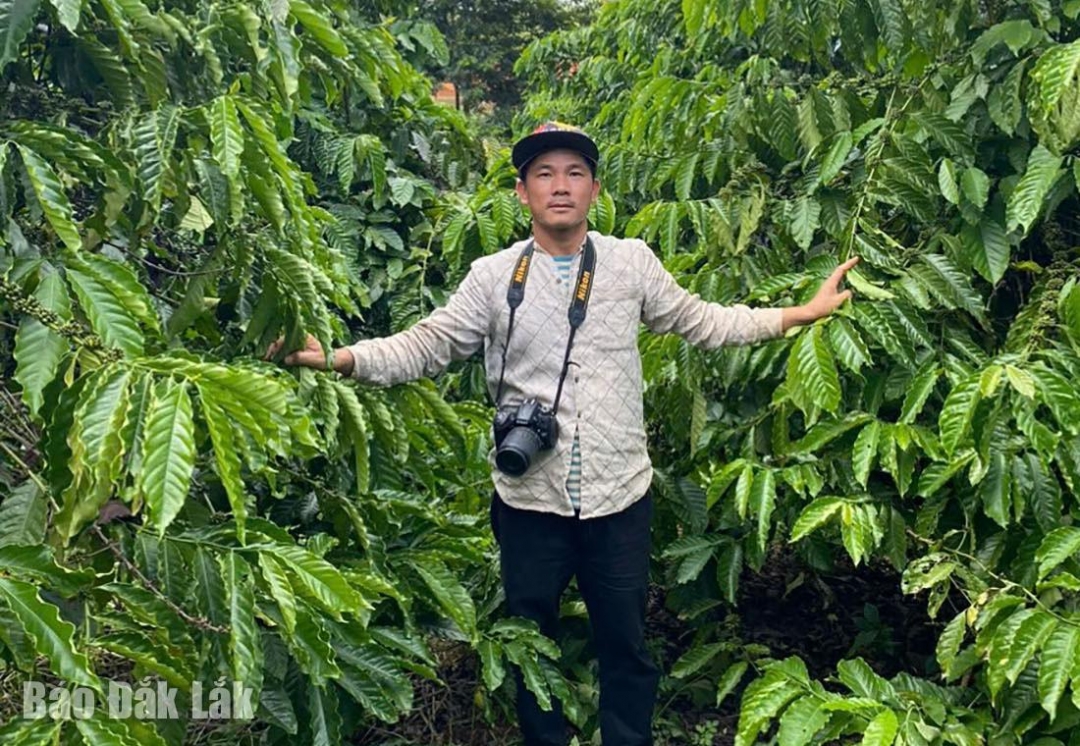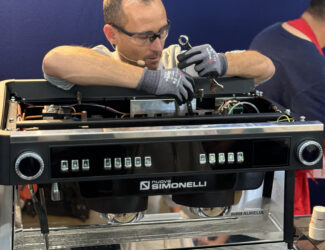
From a School Dropout to the Founder of Shin Coffee: A Journey Brewed in Hardship
As part of my daily search for meaningful stories from the world of coffee and its influential figures, I came across a remarkable profile on Vietnam, a multilingual platform dedicated to promoting Vietnam’s culture, business, and innovation. It told the inspiring story of Nguyen Huu Long, the visionary behind Shin Coffee, one of Vietnam’s most recognized specialty coffee brands. His journey from manual labor on a farm to building an internationally respected coffee label is nothing short of extraordinary.
Nguyen Huu Long’s story began in 1993 when he was just 11 years old. Forced to leave school in grade two, he moved with his family from the poor Ha Tinh province to Gia Lai, where they found work on a coffee plantation. Each day, Long dug trenches, pruned trees, and picked cherries—yet amidst the physical hardship, a quiet dream took root: one day, he would build a future through coffee.
By 1999, Long had moved to Ho Chi Minh City, where he worked first at a café, then at a restaurant. One day, a Japanese customer who frequented the establishment noticed him and, struck by Long’s resemblance to his late son, decided to get to know him. Learning of his background, the man adopted Long, funded his education, and personally taught him Japanese. After completing high school and becoming fluent in the language, Long began working as a translator and gradually saved up enough capital to revisit his dream of entering the coffee business.
His first business venture—selling roasted coffee with a friend—failed quickly due to inexperience. That failure taught him a lesson: passion alone isn’t enough. Determined to succeed, he enrolled in the Business Administration program at the University of Economics in Ho Chi Minh City. Upon graduation, he launched a new café business with a partner, only to experience another failure due to conflicting visions. The loss was devastating—Long not only lost his investment, but also the small home he had worked hard to earn. Out of options, he turned to Japan once again, this time as a labor export worker with the intention of rebuilding from scratch.
From Japanese Industry to Organic Coffee Philosophy
In Japan, Long found a stable job and decent salary, but his passion for coffee remained. He enrolled in organic agriculture training courses and began researching global coffee origins, particularly those present in the Japanese market. It struck him as ironic that while Vietnam was one of the world’s largest coffee exporters, Vietnamese-origin coffee was nearly absent from shelves in Japan. The realization fueled his drive.
He balanced his job with his studies—at times even skipping shifts to attend training and making up for the lost hours later. His diligence caught the attention of a Japanese coffee import-export company, which invited him to join as a manager. The role offered him deep insight into global coffee logistics, quality control, and branding—experiences that would later shape his next move.
In 2015, Long returned to Vietnam and launched his third coffee venture. He named it Shin Coffee, in honor of his adoptive father, and set out to create his own raw material supply chain. He began with 50 hectares in Trang village, eventually expanding to 100 hectares. What set his farms apart was the complete rejection of chemical inputs. He relied exclusively on organic compost made from cow manure and coffee husks, and natural pesticides derived from fish oil. This unorthodox approach met initial resistance from local farmers accustomed to conventional methods, but the results were undeniable.
Yields rose to 6 tons per hectare—compared to the regional average of 3 to 4 tons—and Shin Coffee paid farmers 15% to 20% above local market prices. Even members of the Ba Na ethnic minority, initially hesitant, adopted the model. In time, the cooperative’s farms received organic certification from both the European Union and the United States.
A Vietnamese Coffee Brand on the Global Stage
Today, Shin Coffee is recognized not only for its commitment to organic practices, but also for its quality and consistency. The brand offers over 20 distinct products and retails in Ho Chi Minh City for between 80,000 and 150,000 VND per cup. Shin Coffee is exported to Japan, the United States, and most European markets. In 2020, the prominent economic group PAN selected Shin Coffee as the official diplomatic gift for heads of state attending the ASEAN Summit hosted by Vietnam.
And yet, despite his remarkable success, Nguyen Huu Long holds no formal executive title in the cooperative he founded. Instead, he serves as a mentor and advisor. Asked why, he says:
“I wanted to leave space for younger generations to lead. We’re facing great opportunities and serious challenges, and it’s time for new energy and vision to take over. My role is to ignite the spark—not to control it.”






